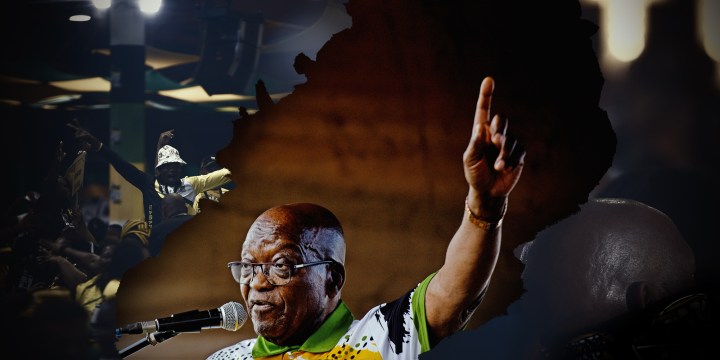WATCH THE VIDEO
Fact check — Did Jacob Zuma end load shedding?

Former president Jacob Zuma reportedly told a rally for the new MK party in KwaZulu-Natal in late February that load shedding was a thing of the past, on his watch.
According to News24, Zuma told his audience that he “totally ended load shedding”.
It did not take long for Zuma to receive reinforcement, on social media platform X, from a predictable quarter: Matshela Koko.
Koko, an engineer by training, worked for Eskom since September 1996, and in October 2015 was made executive in charge of generation. Before his resignation in February 2018, he also briefly served as Eskom CEO.
Koko posted on X in response to Zuma’s comments:
“He is 200% right. @PresJGZuma was in office for 9 years. In those 9 years, we only had load shedding for 8 months. President @CyrilRamaphosa is in office for 6 years now and we have had load shedding every week in the 6 years.”
This is a claim that is made quite frequently by supporters of both Jacob Zuma and Matshela Koko.
But is there any truth to it?
It was a win that Zuma was claiming even while in office: at his State of the Nation Address in 2016, and again at the ANC’s birthday celebrations in January 2017, he alleged that there had been no load shedding since August 2015.
As Africa Check pointed out at the time, this was untrue — there had been load shedding in September 2015 as well.
Looking at the general picture of Zuma’s time as president, data from the Council for Scientific and Industrial Research is useful here.
Jacob Zuma was president of South Africa between May 2009 and February 2018. To be generous, let’s exclude 2018 altogether, since Zuma stepped down in the second month of the year.
According to the CSIR statistics, there were a total 1,528 hours of load shedding during Zuma’s tenure, with the peak blackout period coming in 2015.
It is absolutely true that load shedding has been significantly worse under Ramaphosa’s administration. The most recent available figures from the CSIR, from 2022, show that in 2022 alone there were 11,529 hours of load shedding.
But according to experts, there are good reasons for why things took such a precipitous dive after the Zuma years.
One is that very little maintenance was done on power stations between 2015 and 2018. What this meant was that the grid was uninterrupted for that period, but inevitably the effects of not servicing power stations would catch up — and would have caught up regardless of who was president at the time.
Another reason is the financial situation Eskom was left in after the Zuma years.
The Zondo Commission found that Eskom entered into dodgy contracts worth almost R15-billion with entities linked to the Gupta family. The State Capture inquiry determined that there was a “scheme by the Guptas to capture Eskom” and “divert Eskom’s assets to the Guptas’ financial advantage”.
Central to this project was President Jacob Zuma, the inquiry found.
Read more in Daily Maverick: Zuma was at the Guptas’ beck and call, played key role in bid to capture Treasury and Eskom
There is little doubt that load shedding would not be as severe now if Eskom was in a better financial situation — but the looting of the electricity parastatal under Zuma’s leadership has hobbled Eskom with debt.
There’s also the fact that one of the reasons why South Africa’s coal-fired power stations have been struggling is that the dodgy contracts entered into with Gupta companies meant that these stations were supplied with sub-standard coal during the Zuma years.
This would have caused some lasting damage to these power stations, contributing to their sub-optimal performance in later years.
In short: Jacob Zuma did not end load shedding.
He is also not entirely to blame for load shedding, since it’s now well known that the government first ignored warnings about the power stations during the Mbeki era.
But there’s little doubt that the ruinous practices of State Capture on Zuma’s watch exacerbated and speeded the decline of South Africa’s electricity system — leading us to the load shedding nightmare we find ourselves in today. DM




















 Become an Insider
Become an Insider
Are you bored, Rebecca? Yet another banal, worthless article thinly disguised as fact checking. But hey, at least the DA isn’t getting a bashing for a change.
Must be slow day for you. Again.
You should pause a moment before sending your comments off. Be nice.
I suspect Grahame was very diplomatic
Who rated Graeme’s post as anything other than uncivil? 3 of our fellow Maverick Insiders thought this was a civil enough post to let it through? Or do we all just click yes 3 times in order to move on?
Possibly a little of both.
The comment is a little churlish and unproductive, though.
As is the article — unproductive, that is. Totally agree with Graeme!